Table of Contents
When Learning Feels Like Play, Kids Learn More
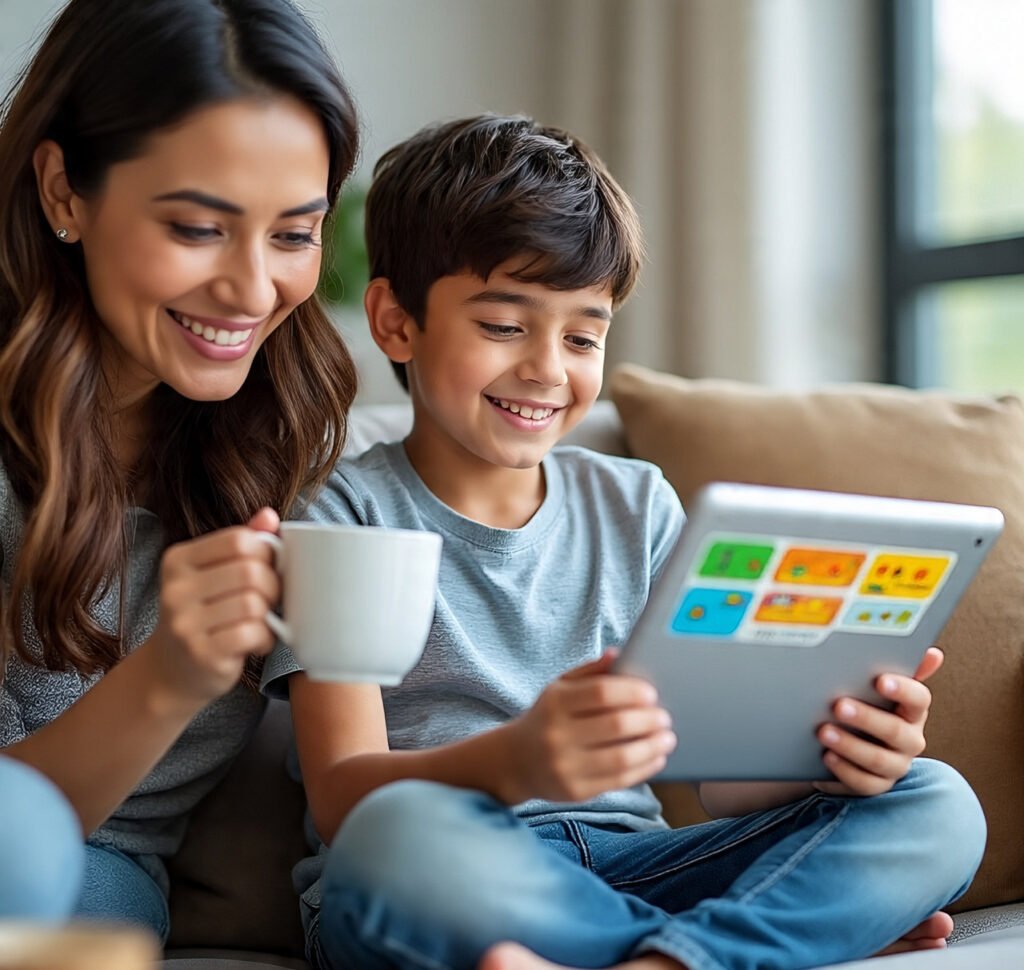
It was a rainy Saturday afternoon. Meera was sipping her tea while her 7-year-old son Aarav sat on the couch, tablet in hand. She braced herself for yet another hour of endless cartoon videos—until she peeked over his shoulder and saw something surprising. Aarav wasn’t just swiping aimlessly; he was laughing, solving puzzles, and reading clues.
“Wow, you just solved that!” she said. Aarav grinned. “It’s a game, Mama… but I’m learning too.”
That’s the magic of kids learning games when fun and learning come together so seamlessly that children barely realize they’re building skills for life.
Why Play is the Brain’s Best Teacher
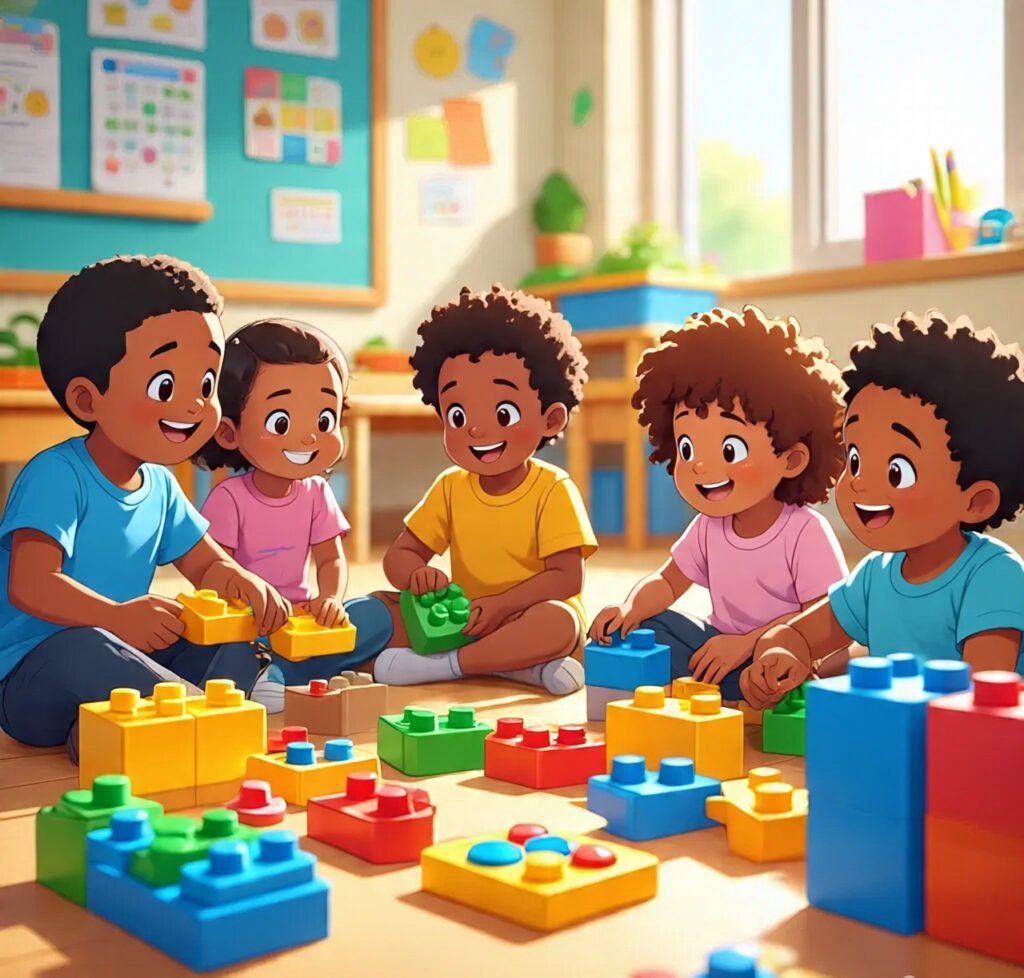
Research shows that children’s brains are wired to learn through play. Whether it’s a toddler stacking blocks or a 10-year-old solving a math puzzle, play encourages curiosity, problem-solving, and confidence. Unlike traditional rote learning, games stimulate multiple areas of the brain boosting memory, attention span, and creative thinking.
When kids are having fun, their stress levels drop, making it easier to absorb and retain information. That’s why the most effective kids learning games feel more like adventures than assignments.
The Science Behind Fun Learning
Educational psychologists agree: active engagement is key to effective learning. Games involve challenges, rewards, and instant feedback all of which keep kids motivated.
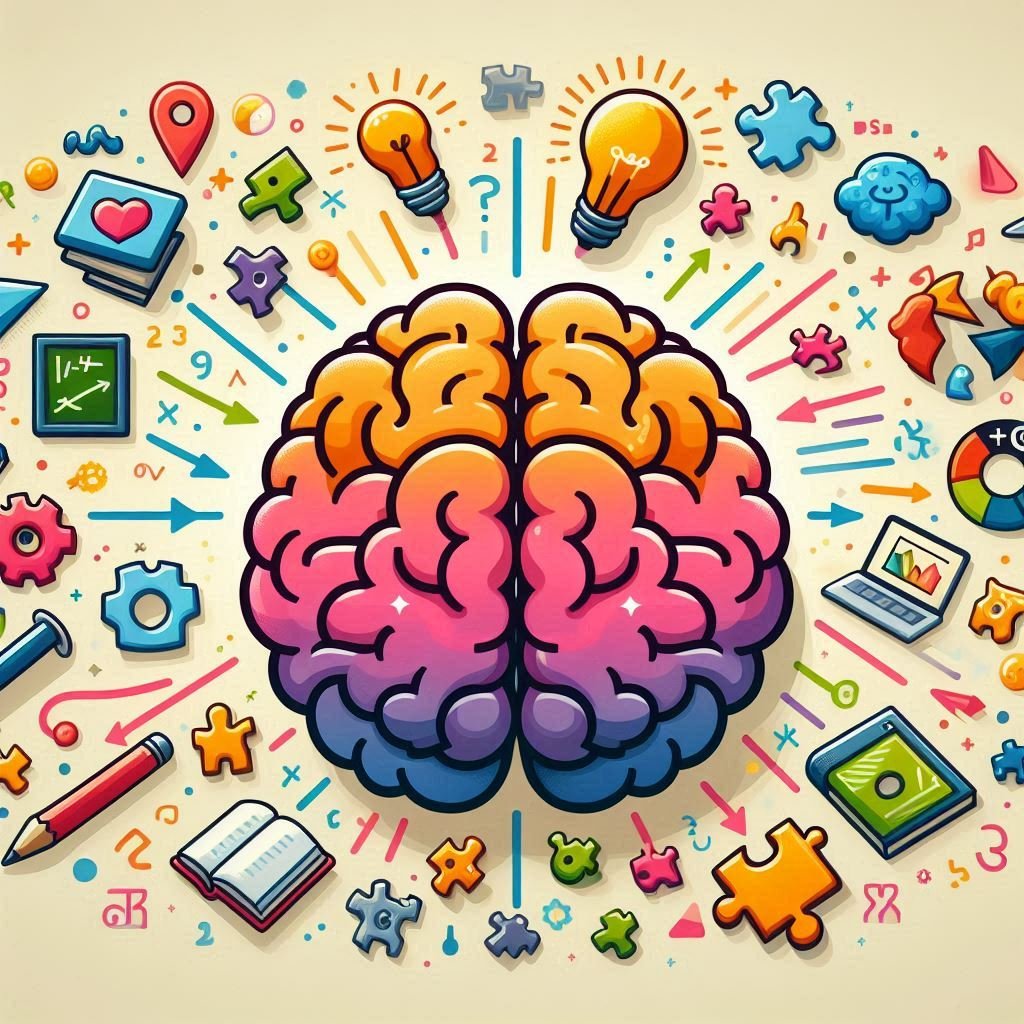
In kids learning games, these elements translate into:
- Challenges that stretch thinking without causing frustration
- Rewards that celebrate progress, not just perfection
- Instant feedback that helps children self-correct and try again
When kids see learning as a game, they approach mistakes differently. Instead of fearing them, they view them as part of the journey—just like in their favorite level-up challenges.
Skills Kids Build Without Even Realizing
Parents often ask, “Are they really learning, or just playing?” The answer: both.
Here’s what kids learning games quietly teach:
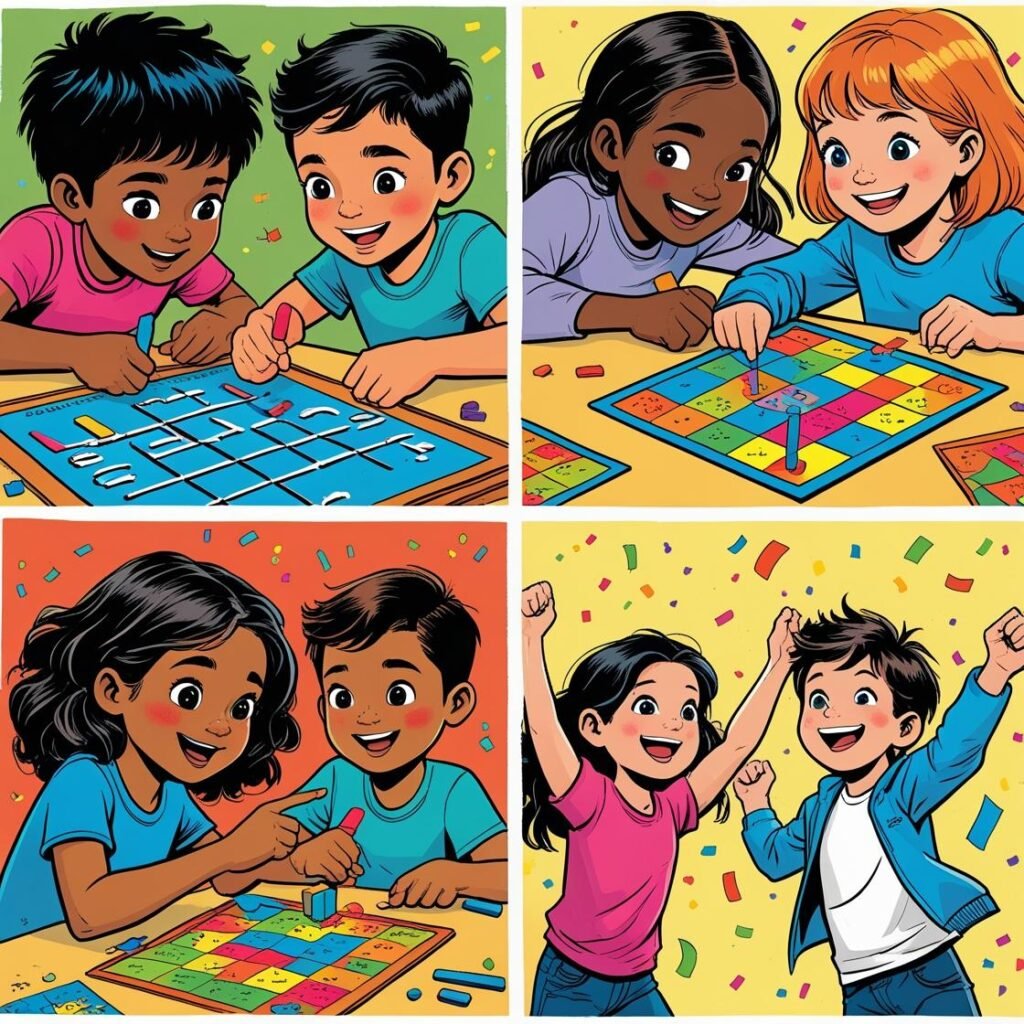
- Problem-Solving Skills – Every puzzle, quiz, or clue strengthens logical thinking.
- Math & Literacy – Numbers and words become tools for fun instead of fear.
- Social Skills – Multiplayer or team challenges encourage cooperation and communication.
- Resilience – Failing a level isn’t the end; it’s motivation to try again.
- Digital Literacy – Kids learn to navigate technology in productive, purposeful ways.
Why Parents Love Game-Based Learning
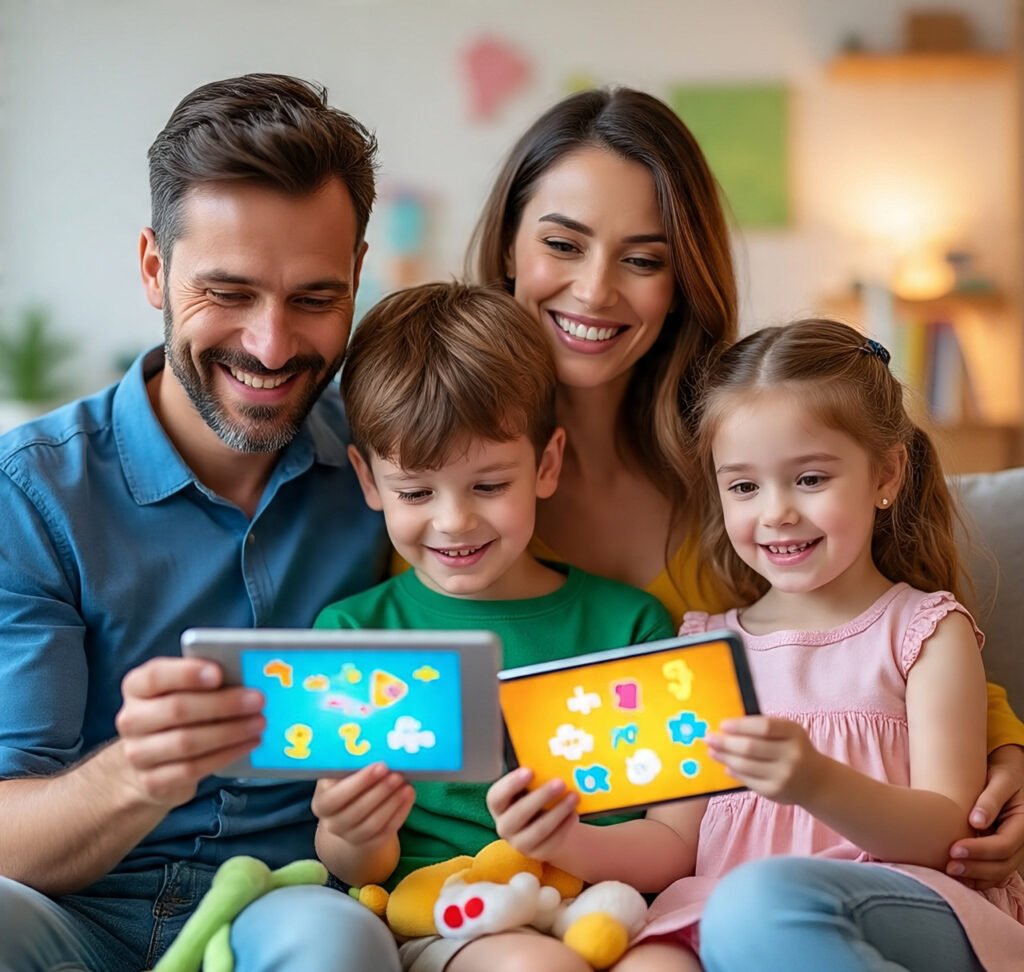
Parents often worry about screen time but when that screen time is spent on kids learning games, it becomes an investment in growth.
Unlike passive entertainment, these games encourage:
- Active participation instead of mindless scrolling
- Goal-setting and achievement tracking
- Confidence-building through small wins
The best part? Parents can join in too. Playing together not only makes learning more fun but also strengthens parent-child bonds.
A Real-Life Story: From Playtime to Progress
Take Rohan, an energetic 8-year-old who disliked reading. His mother introduced him to a word-based treasure hunt game. At first, Rohan just wanted to “find the treasure,” but soon he was reading clues, learning new words, and even writing his own riddles for his friends.
Three months later, his school teacher noticed a remarkable improvement in his vocabulary and comprehension. What changed? The power of kids learning games turned reading into an exciting challenge rather than a chore.
Making the Most of Kids Learning Games
If you’re ready to try this approach at home, here are some tips:
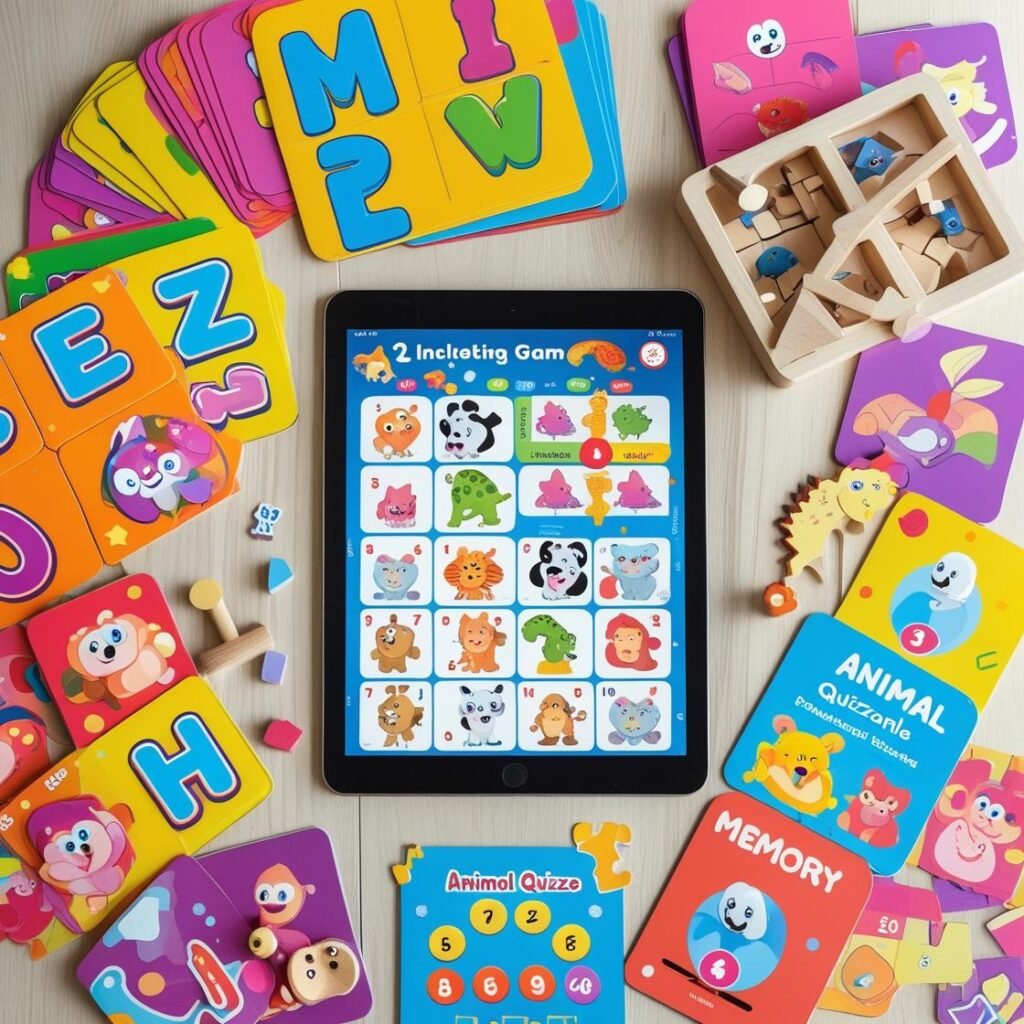
- Choose games that match your child’s interests – If they love animals, find wildlife-themed puzzles or quizzes.
- Balance fun and difficulty – Too easy, and they’ll get bored; too hard, and they’ll give up.
- Set healthy limits – Schedule game time so it complements other activities.
- Join the fun – Play together, discuss strategies, and celebrate wins.
- Look for variety – Mix in math, reading, memory, and creative challenges to develop multiple skills.
FocusFun: Where Play Meets Purpose
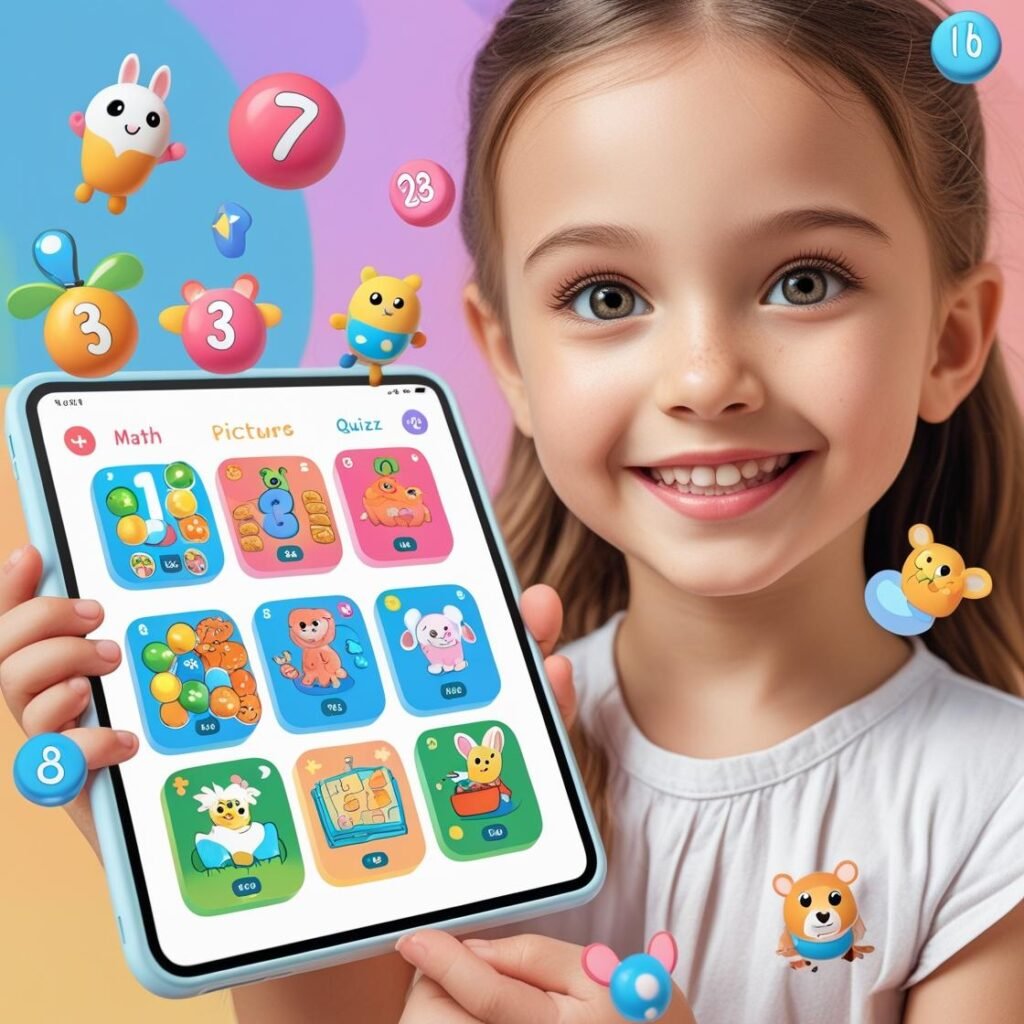
There are plenty of apps and websites out there, but platforms like FocusFun take things further by designing games specifically for cognitive development. Their activities blend fun visuals, interactive challenges, and age-appropriate content keeping both parents and kids happy.
From math puzzles to “find the picture” games, FocusFun ensures learning is something children want to do, not something they have to do.
How Kids Stay Motivated
Motivation in kids learning games comes from the thrill of progress. Levels, badges, and rewards create a sense of accomplishment. Even better, kids get to see instant results, which builds a positive feedback loop success leads to more effort, and more effort leads to more success.
Parents’ Role in Game-Based Learning
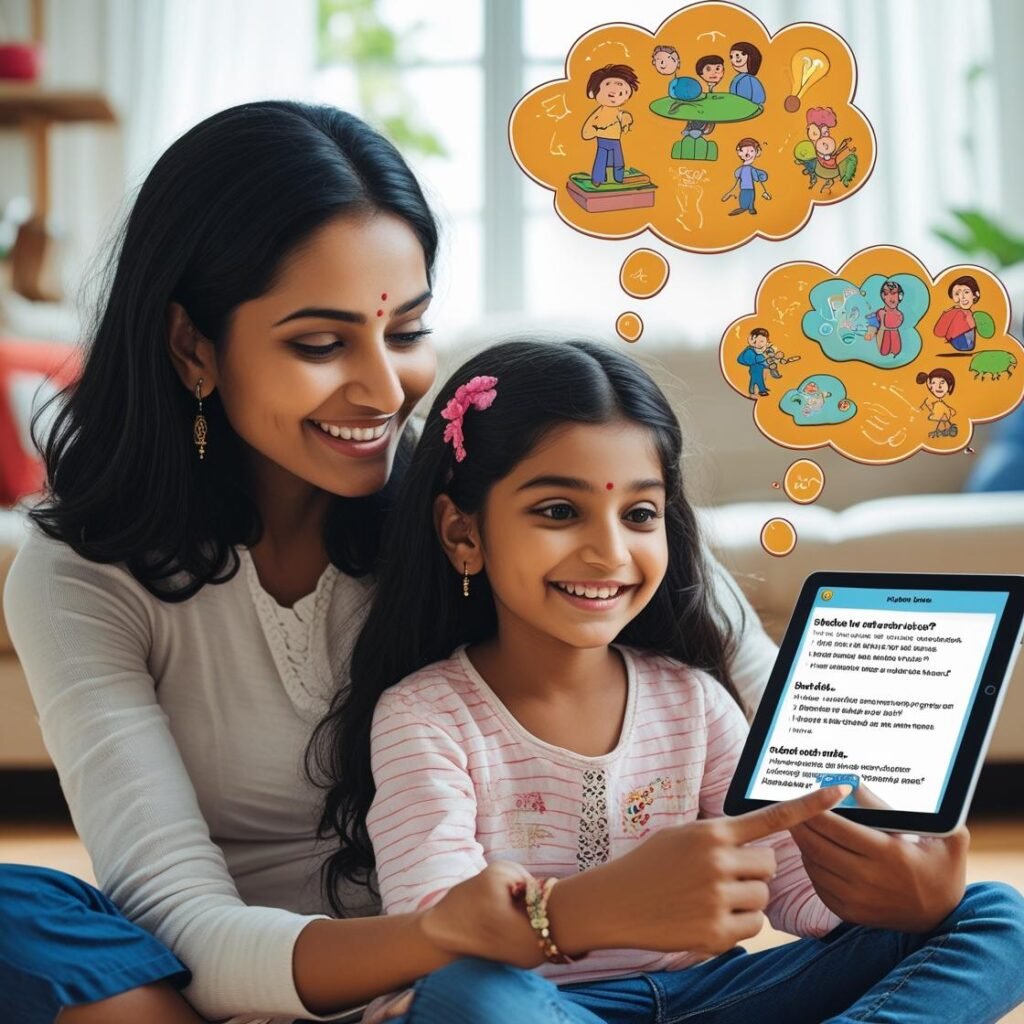
While the games themselves do the teaching, parents play a crucial role in making the experience meaningful.
- Ask questions about the game’s challenges
- Connect in-game learning to real life (“Remember that math puzzle? That’s the same as calculating our grocery bill.”)
- Encourage reflection after playing (“What was the hardest part? How did you solve it?”)
By doing this, parents transform game time into rich learning moments.
Why This Matters More Than Ever
In today’s digital world, children are surrounded by technology. Instead of fighting against it, guiding them toward productive use like kids learning games is a smarter, healthier approach. These games don’t just prepare kids for school; they prepare them for life in a problem-solving, fast-changing world.
Final Thoughts
Learning doesn’t have to mean textbooks and tests. When children engage in kids learning games, they build skills that stick because they’re having fun while doing it.
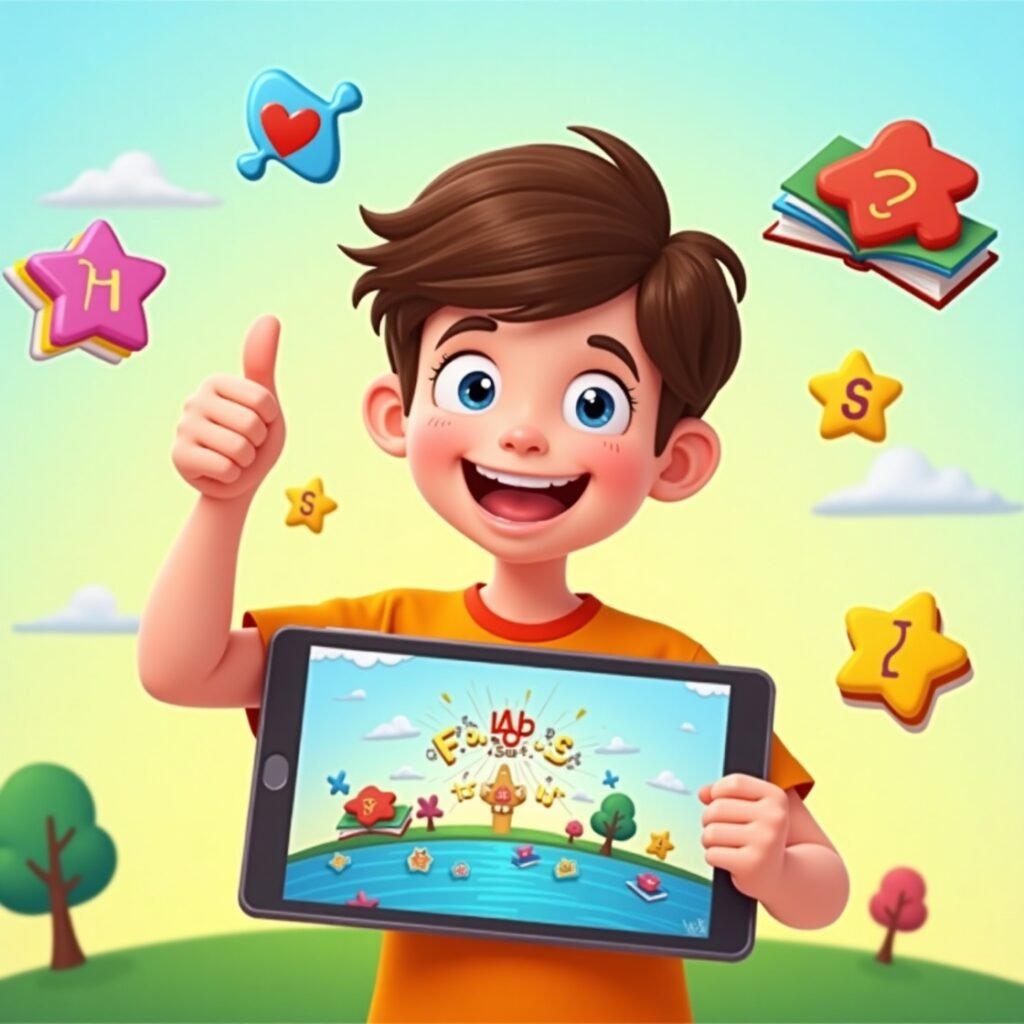
So the next time you see your child laughing over a puzzle or concentrating on a quiz, know that their brain is growing, their confidence is building, and their love for learning is taking root.
And if you’re looking for a safe, engaging way to make this a part of everyday life, FocusFun offers a world of interactive challenges designed to turn playtime into brain time. Like Aarav on that rainy Saturday, your child might just surprise you and maybe even teach you something new along the way.
FAQs
1) What are the best kids learning games?
Short answer: Games that mix skill practice (math, reading, logic) with instant feedback and levels. Look for age-fit, clear goals, and progress tracking. FocusFun covers these with quizzes, picture-find, and math puzzles.
2) Do learning games really improve grades?
Yes, regular 10–15 minute sessions boost recall, attention, and problem-solving, which typically shows up as better quiz/test performance in 6–8 weeks.
3) How much screen time is okay for kids?
Aim for 60–90 minutes/day of purposeful use. Keep sessions short (10–20 mins), with breaks and a no-screens-before-bed rule.
4) How do I choose age-appropriate learning games?
Check age labels, reading level, tutorial clarity, and if hints/adaptive difficulty are present. A quick test: kids should succeed ~70% of the time.
5) Which skills do kids learning games build?
Core literacy & numeracy, working memory, visual scanning, flexible thinking, and perseverance through levels and retries.
6) Can games reduce tantrums over screen time?
Yes, use clear start/stop rules: 1 mission = 1 checkmark. When the mission is done, the session ends—predictability reduces friction.
7) Can kids learning games help with executive function?
Yes, planning levels, remembering steps, and switching strategies directly exercise executive skills.
8) Does FocusFun have parent control features?
Parents can set play windows, cap sessions, and view learning summaries turning screen time into skill time.
9) How can FocusFun fit into lesson plans?
Use a 5-minute opener (Find the Picture), 10-minute skill practice (Math/Quiz), and a 2-minute reflection. Total: ~17 minutes.
10) How does FocusFun handle mobile addiction?
Short levels, built-in timers, and clear missions make stopping easy. Progress is saved, so there’s no fear of “losing streaks.”
